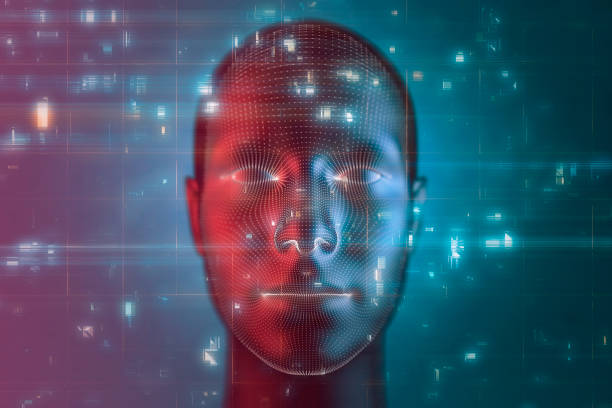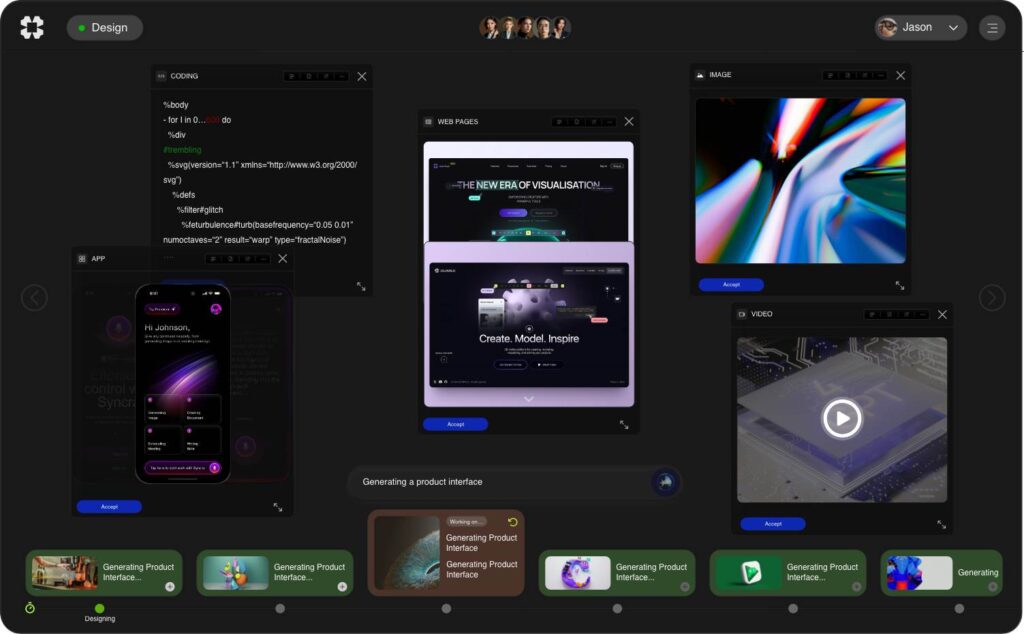In the dynamic landscape of technology, the emergence of AI Operating Systems (AIOS) is set to redefine industries. The convergence of artificial intelligence and robotics is not merely a trend; it is a game-changer that can enhance operational capabilities, streamline processes, and foster unprecedented advancements in digital transformation. This article delves into the multifaceted applications of AIOS, focusing on its role in robotics, energy efficiency, and the broader spectrum of digital transformation.
.
**AIOS for Robotics: Automating the Future of Work**
The integration of AIOS in robotics is a critical factor driving automation in various sectors. A fundamental characteristic of AIOS is its ability to process vast amounts of data in real-time, enabling robots to learn and adapt to their environments. For instance, warehouses and manufacturing floors have begun incorporating AIOS-driven robots that can optimize storage, manage inventory levels, and execute complex assembly tasks with minimal human intervention.
.
Moreover, AIOS enhances robotic precision and flexibility. In the healthcare sector, surgical robots equipped with AIOS capabilities can perform delicate operations with greater accuracy than human hands. A study by the Journal of Medical Robotics Research highlights that these AI-powered systems can lead to fewer complications and shorter recovery times for patients (source: Journal of Medical Robotics Research, 2023). These intelligent systems not only reduce the workload on medical professionals but also improve patient outcomes significantly.
.
AIOS in robotics also allows for seamless collaboration between humans and machines. Collaborative robots, or cobots, are designed to work alongside human operators, enhancing productivity without replacing the workforce. This synergy exemplifies how AIOS can facilitate a new era of human-robot collaboration that emphasizes safety and efficiency.
.
**Energy-Efficient AIOS: The Green Revolution in AI**
As concerns about climate change intensify, energy efficiency has become a pivotal consideration for industries across the globe. Energy-efficient AIOS is at the forefront of this movement, aiming to minimize the energy footprint of AI operations without compromising performance. These systems optimize algorithms to reduce computational demands, ensuring that not only are resources conserved, but costs are also reduced.
.
The concept of AIOS contributing to energy efficiency is evident in sectors such as manufacturing. Smart factories equipped with AIOS can analyze real-time data on energy consumption and make adjustments to equipment operations to minimize waste. According to a report by the International Energy Agency, industries leveraging AI for energy management could save up to 10-15% of their annual energy consumption (source: International Energy Agency, 2023).
.
Furthermore, the deployment of energy-efficient AIOS extends to the renewable energy sector. Sophisticated AI systems can predict energy supply and demand patterns, facilitating better integration of renewable sources like wind and solar into existing grids. This capability not only supports the transition to cleaner energy but also enhances the stability and resilience of energy systems.
.
**AIOS for Digital Transformation: Reimagining Business Strategies**
Digital transformation is reshaping businesses, with AIOS positioned as a catalyst for change. AIOS empowers organizations to harness data analytics, machine learning, and automated processes to innovate their operations and improve customer experiences.
.
In retail, for example, AIOS enables the use of predictive analytics, allowing businesses to anticipate market trends and consumer preferences. Retail giants are employing AIOS to analyze customer behaviors across channels, leading to personalized marketing strategies and enhanced inventory management. A study by McKinsey & Company revealed that companies leveraging AI-powered analytics saw a 15-20% increase in sales within the first year (source: McKinsey & Company, 2023).
.
Similarly, the financial sector is witnessing a digital upheaval with AIOS facilitating smarter decision-making. Financial institutions utilize AIOS to detect fraudulent activities, manage risks, and streamline compliance processes. The ability to analyze transaction patterns and flag anomalies in real-time significantly enhances security measures, protecting both the institution and its clients.
.
**Industry Use Cases: AIOS in Action**
1. **Manufacturing Sector**: As manufacturing becomes increasingly automated, AIOS is utilized to streamline production lines and predictive maintenance. Robots powered by AIOS can forecast equipment failures before they occur, minimizing downtime and optimizing the supply chain.
2. **Healthcare Industry**: Aside from surgical assistance, AIOS is used in telehealth applications and patient management systems. By analyzing health data, AIOS can assist in diagnosing conditions and even suggest personalized treatment plans, revolutionizing patient care.
3. **Agriculture**: Smart agriculture is thriving with the implementation of AIOS in precision farming. AIOS-driven drones and sensors collect data on soil conditions, crop health, and weather patterns, allowing farmers to make informed decisions, thereby enhancing yields while conserving resources.
4. **Transportation**: The transportation sector is leveraging AIOS for autonomous vehicles. From navigation to obstacle detection, AIOS enables vehicles to learn from surroundings, improving safety and efficiency. According to a report by the National Highway Traffic Safety Administration, self-driving vehicles could reduce traffic accidents by up to 90% (source: NHTSA, 2023).
5. **Energy Sector**: As previously noted, AIOS is integral to energy management solutions, helping utility companies predict energy demand and integrating renewable energy sources into the grid more efficiently. Companies employing AIOS have reported reduced operational costs and enhanced energy distribution management.
.
**Technical Insights: The Backbone of AIOS**
The technical prowess of AIOS lies in its architecture and foundational technologies. AIOS is built on advanced algorithms that enable machine learning, deep learning, and natural language processing. These technologies facilitate the creation of intelligent systems capable of autonomous decision-making and learning from experiences.
.
Neural networks, a vital component of machine learning, operate on the principles of how human brains function. This resemblance allows machines to learn complex patterns from large datasets, promoting advancements across applications such as speech recognition, image analysis, and even predictive analytics.
.
Furthermore, the lightweight nature of certain AIOS versions allows them to run on resource-constrained devices, making them ideal for edge computing scenarios. This decentralization improves efficiency by processing data closer to the source, reducing latency and bandwidth usage while enhancing response times.
.
**Conclusion: A Path Forward with AIOS**
The potential of AIOS is vast, contributing significantly to robotics, energy efficiency, and digital transformation. As industries adapt to these technological innovations, the incorporation of AIOS will play a defining role in shaping their futures.
.
Embracing AIOS requires forward-thinking strategies and investment in the right infrastructure, but the rewards are profound: enhanced operational efficiencies, cost savings, and improved customer experiences.
.
While challenges persist, such as addressing the ethical implications of AI deployment and ensuring robust cybersecurity measures, the future is bright. Companies and industries that leverage AIOS will not only stay ahead of the curve but also drive the next wave of innovations that will propel the global economy into a sustainable and technologically advanced era.
.
In summary, the integration of AIOS represents a transformative opportunity for businesses, providing them with the tools needed to navigate the complexities of a rapidly evolving technological landscape. The future is here, and AIOS is leading the charge.





















